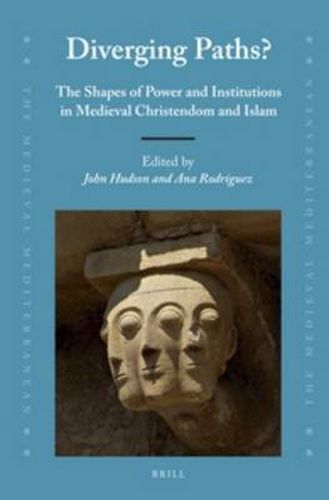Readings Newsletter
Become a Readings Member to make your shopping experience even easier.
Sign in or sign up for free!
You’re not far away from qualifying for FREE standard shipping within Australia
You’ve qualified for FREE standard shipping within Australia
The cart is loading…






Diverging Paths? investigates an important question, to which the answers must be very complex: why did certain sorts of institutionalisation and institutional continuity characterise government and society in Christendom by the later Middle Ages, but not the Islamic world, whereas the reverse end-point might have been predicted from the early medieval situation? This core question lies within classic historiographical debates, to which the essays in the volume, written by leading medievalists, make significant contributions. The papers, drawing on a wide range of evidence and methodologies, span the middle ages, chronologically and geographically. At the same time, the core question relates to matters of strong contemporary interest, notably the perceived characteristics of power exercised within Islamic Middle Eastern regimes. Contributors are Stuart Airlie, Gadi Algazi, Sandro Carocci, Simone Collavini, Emanuele Conte, Nadia El Cheikh, Maribel Fierro, John Hudson, Caroline Humfress, Michel Kaplan, Hugh Kennedy, Simon MacLean, Eduardo Manzano, Susana Naroztky, Annliese Nef, Vivien Prigent, Ana Rodriguez, Magnus Ryan and Bernard Stolte.
$9.00 standard shipping within Australia
FREE standard shipping within Australia for orders over $100.00
Express & International shipping calculated at checkout
Diverging Paths? investigates an important question, to which the answers must be very complex: why did certain sorts of institutionalisation and institutional continuity characterise government and society in Christendom by the later Middle Ages, but not the Islamic world, whereas the reverse end-point might have been predicted from the early medieval situation? This core question lies within classic historiographical debates, to which the essays in the volume, written by leading medievalists, make significant contributions. The papers, drawing on a wide range of evidence and methodologies, span the middle ages, chronologically and geographically. At the same time, the core question relates to matters of strong contemporary interest, notably the perceived characteristics of power exercised within Islamic Middle Eastern regimes. Contributors are Stuart Airlie, Gadi Algazi, Sandro Carocci, Simone Collavini, Emanuele Conte, Nadia El Cheikh, Maribel Fierro, John Hudson, Caroline Humfress, Michel Kaplan, Hugh Kennedy, Simon MacLean, Eduardo Manzano, Susana Naroztky, Annliese Nef, Vivien Prigent, Ana Rodriguez, Magnus Ryan and Bernard Stolte.